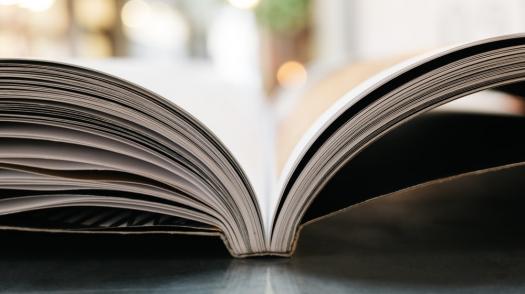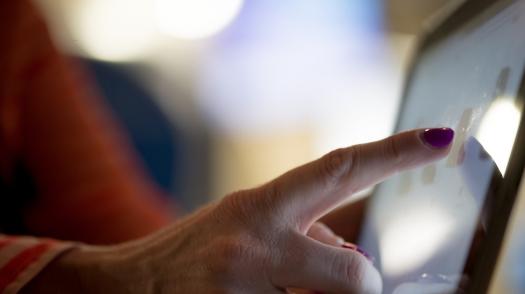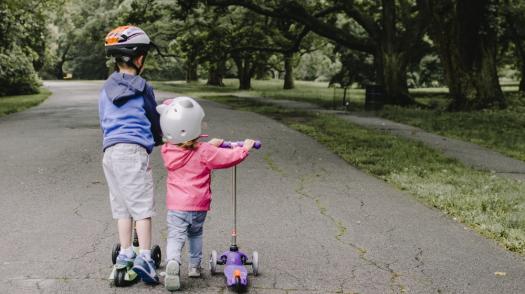
Returning home after an acquired brain injury: an introduction
This section talks about a child’s return home, either from hospital or a specialist centre.
Millie was 18 months old when encephalitis resulted in a brain injury. Millie is now eight – mum Sam shares her story in a Q&A.

Published: February 2019. Date of brain injury: June 2012. Child's age at time of injury: 18 months
I last shared Millie’s story just before her 6th birthday – there I talked about life since Millie’s suspected autoimmune encephalitis when she was 18 months old.
Millie is now eight years old and the last couple of years have been busy!
Here is our update…

Encephalitis presented as a baby when Millie had a 1 hour 45 minute seizure. Millie’s official diagnosis is suspected autoimmune encephalitis as her strain of encephalitis has never been seen before.
Millie was left with a brain injury and at the age of two-and-a-half she received residential rehabilitation at The Children’s Trust (in June 2013).
Millie is a very happy and loving little girl who loves swimming, shopping, sensory play. She loves her music – anything from Stormzy to Little Mix.
Millie loves getting her hands on my make-up but her true love is Disney (she got that from me) – the films and the characters. So when she’s had a bad day it’s PJ time and Disney films, Millie’s favourite being Mulan.
Going to Demelza Children Hospice is something Millie loves. She goes swimming, watches films, plays in soft play and the sensory room. Demelza offers us respite and opportunities to make beautiful memories as a family which means the world to us, especially now Millie has her little brother who also loves coming along.

Everyday life can be a struggle trying to juggle two kids, two schools runs, campaigning for more SEN secondary school places in our area, keeping the house running on top of medical appointments, medicine and chasing appointments or equipment Millie needs – but I think we have it down to a fine art and cope really well.
Millie can seizure up to 30 times per day and, of a night when they really are at their worse, on average Millie seizures three times normally 11.30pm, 3am and 5am. These usually last anything between 5-15 minutes at a time so the paramedics are frequent visitors to our home (some are now on first name terms with Millie).
Everyday life is a happy life – yet we always have a black cloud over our heads as to when is the next big seizure coming, when’s the next unplanned hospital trip, will she survive the next big seizure – but we face life with a smile and positive attitude.
We get a lot of support and love from our family who are always there to lend a helping hand, especially my mum – I really don’t know what I’d do without her.
Demelza have also been a big support throughout the years and we’ve made friends with other parents there, which is lovely.
Millie has fought very hard to be here with us – we are very lucky and cherish every breath she takes, every smile and every sound she makes.

Millie loves going to school and is a sociable little girl. Unfortunately Millie’s not been very well lately and really struggles to get into school – but when she does she loves it and is so happy.
You can always tell Millie’s favourite members of staff and she always greets them with a massive smile and a hold of her hand.
Last year we decided to search further afield for answers as to what and why this all happened to see if there was another Millie in the world.
We sent Millie’s hospital notes to the Boston Children’s Hospital for a second opinion to see if they could come up with anything other than what we been told. We sent her notes rather than take her there as we thought she probably wouldn’t be well enough for the long journey or we would end up as inpatient there.
Boston wrote back to tell us exactly what we’ve been told from day one – a suspected autoimmune encephalitis with a hypoxia ischemic injury. So we’re no closer to any answers or an official name for Millie’s encephalitis.

My message for other SEN parents and encephalitis families would be keep on doing what you’re doing!
You’re doing a fantastic job and don’t ever let anyone tell you otherwise; you’re braver than you feel and stronger than you think.
Always follow your instincts – nothing’s stronger than a parent’s instinct, you know your child/family member better than anyone, even though you may not have a PHD you’re also the expert.
It’s okay to cry, to be sad, to talk, to ask for help – there’s no shame in it. Never give up fighting and cherish every memory.
I often see people staring at myself and Millie in the street – some just staring out of curiosity, some looking out of sympathy. Don’t take pity on us; our life is full of smiles and memories.
I was over the moon to see Dee’s story in Hollyoaks showing autoimmune encephalitis. It was a brilliant storyline portrayed brilliantly by all involved.
Hollyoaks has definitely helped spread awareness but most definitely more needs to be raised – there simply is not enough awareness of this dangerous life threatening disease. Encephalitis changed all of our lives forever.
Millie’s story was shared on World Encephalitis Day 2019 – February 22. You can also read Millie’s story part 1, written in 2015. You can follow Millie’s Journey on Facebook.

This section talks about a child’s return home, either from hospital or a specialist centre.

Read our guide to managing the return to school after an acquired brain injury.

Millie was only 18 months when severe seizures turned out to be encephalitis which resulted in a brain injury. Her mum Sam tells their story.